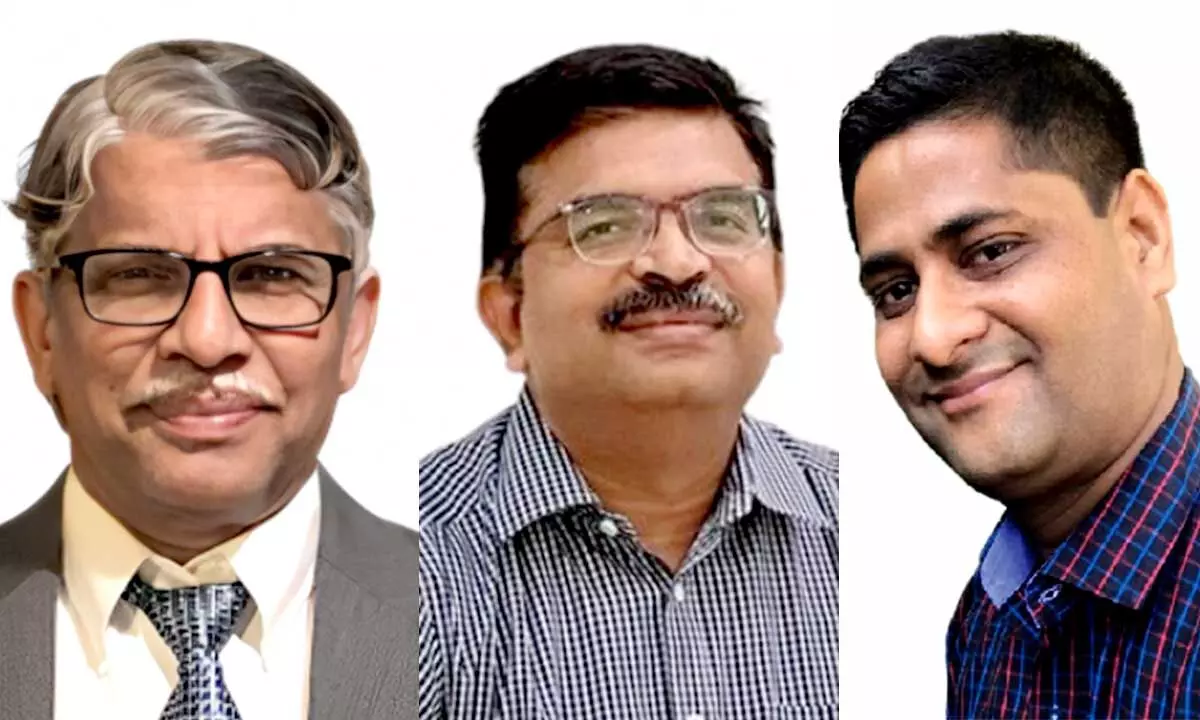Wearable devices can help doctors
Drug Discovery and Development workshop is being organised by FABA (Federation of Asian Biotech Associations) Academy in collaboration with US-based non-profit organisation Science Gurus, and the University of Hyderabad from March 13 to April 2.
image for illustrative purpose

Hyderabad: Drug Discovery and Development workshop is being organised by FABA (Federation of Asian Biotech Associations) Academy in collaboration with US-based non-profit organisation Science Gurus, and the University of Hyderabad from March 13 to April 2. This workshop is also supported by World Trade Center Shamshabad & Visakhapatnam.
The workshop proved to be a resounding success, with an impressive lineup of brilliant minds and cutting-edge ideas. The workshop served as an ideal platform for exchanging innovative ideas and provided a unique opportunity for participants to learn from the experts and enhance their knowledge and skills in drug discovery and development.
The 15th day of the workshop commenced with a presentation on the fast-growing technology of wearable devices in healthcare, which has the potential to revolutionise disease identification and management. Dr Chakk Ramesha, CEO, Medhus Bio LLP delved into the interplay between biology and silicon concerning wearable devices and their role in improving healthcare.
He began the lecture by introducing the concept of biomarkers, measurable indicators that can be used to detect and diagnose diseases. He then discussed various types of diagnostics, including predictive and point-of-care diagnostics, which can be used to identify diseases early and more accurately.
The use of wearable devices in point-of-care diagnostics was also highlighted, with the potential for these devices to collect and analyse data in real-time. Dr Ramesha also spoke about kinesiology, the study of human movement, and how wearable devices can be used to monitor physical activity levels.
Finally, he discussed the potential for wearable devices in predictive diagnostics for osteoporosis. By monitoring bone density, wearable devices can predict a patient's risk of developing the condition and help medical professionals develop preventative measures.
Overall, his talk highlighted the exciting potential of wearable devices in healthcare. With advancements in technology, wearable devices are set to become an increasingly important tool in the identification, management and prevention of a range of conditions.
During the second lecture, Dr Shesheer Kumar, MD & Founder Direct, Huwel Life Sciences and a renowned expert in molecular and immune diagnostics, gave a captivating talk on the latest developments and applications of these technologies. The talk covered the basics of molecular biology, including the importance of ATGC and the process of polymerase chain reaction (PCR) and real-time PCR in analysing DNA samples.
He also explained the role of DNA polymerase in the chain reaction process and how it is used in research, diagnostics, and forensics. He went on to discuss the latest advancements in molecular diagnostics, including CRISPR- based, chip-based, and isothermal amplification-based point-of-care devices.
These new technologies have revolutionised the field of molecular diagnostics, providing faster, more accurate results with the potential to be used in remote settings or low-resource environments. He also delved into immune diagnostics, highlighting the essential characteristics for immunological testing, such as sensitivity, specificity, and reproducibility. Dr. Kumar gave a detailed explanation of Enzyme-Linked Immunosorbent Assay (ELISA), a common technique used in immunodiagnostics.
The talk by Dr Kumar was well-received by the participants, who appreciated the in-depth knowledge shared by the expert in the field of molecular and immune diagnostics.
The day concluded with remarkable presentations by Dr Dipam Patel, Pr Scientist, Zydus Life Sciences, on Selective Protein Tyrosine Phosphate 1B (PTP-1B) Inhibitors as a New Class of Antidiabetic Agents'.
The workshop on drug discovery and development, organised by the FABA Academy in partnership with the University of Hyderabad and Science Gurus, proved to be an excellent platform for exchanging innovative ideas and enhancing knowledge and skills in the field. With the presentations by experts on diagnostics the day concluded on a remarkable note.

